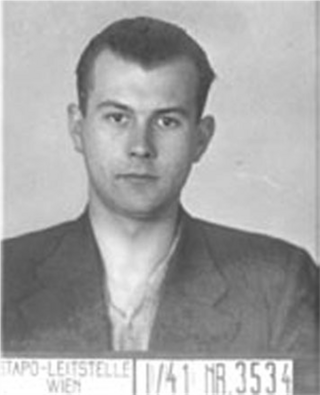MMag. Dr. Eberhard Würzl

Personalia
Born:
Died:
Profession:
Persecution:
Military arrest 18.01.1941 - 03.02.1941,
Imprisonment 03.02.1941 - 01.03.1941,
Resistance fighter (undetected)
Memberships
Curriculum Vitae
Due to his father's professional situation, Eberhard Würzl had to change grammar school several times, from Seitenstetten, where he learned his musical aptitude as a choirboy, to Linz and then to LBA Vienna I, where he graduated in 1935. In 1935, he was accepted into the student fraternity Welfia. The director of the Klosterneuburg grammar school choir recognizes and promotes his musical talent and encourages him to study music. Eberhard Würzl began studying organ, music theory and composition at the Academy of Music and Performing Arts in Vienna, adding school music in 1937.
In spring 1939, he came into contact with the "Austrian Freedom Movement" (ÖFB), the resistance group led by Klosterneuburg Augustinian choirmaster Roman Karl Scholz. Conspiratorial meetings of this group took place in the apartment of music student Eberhard Würzl. Eberhard Würzl composes the melody to the hymn "Lied von der Gerechtigkeit" (Song of Justice) written by Roman Scholz:
(1) Es geht ein Sturm wie Frühlingsahnen
durch alle Völker, weit und breit,
|: und Fahnen wehen, schwarze Fahnen,:|
|: draufrot der Blitz: Gerechtigkeit! :|
(2) The earth shakes, the legions,
the blacks march into battle.
|: The cry of the millions resounds, :|
|: the cry of vengeance: justice!:|
(3) And must we first also die,
clenching our fists, ready to storm,
|: our heirs will one day prevail:|
|: and then have: Justice! :|
The ÖFB group Scholz-Kastelic-Lederer is exposed in 1940 by the infiltrated confidant Otto Hartmann. Eberhard Würzl, who had been drafted into the German Wehrmacht in 1940, was investigated in the course of the wave of arrests against the ÖFB and charged with "preparation for high treason". As a member of the Wehrmacht, he is sent to the Wehrmacht prison at Hardtmuthgasse, Vienna 10, on 18 January 1941 and is registered by the Gestapo for identification purposes on 3 February 1941. After six weeks, he is released "on parole" on March 1, 1941 due to a lack of concrete evidence and sent to the front. He narrowly escapes the Stalingrad cauldron due to illness. Nine of his comrades from the ÖFB were executed and more than a hundred sentenced to long prison terms.
Places
Residence:
Citations
- Krause, Peter/Reinelt, Herbert/Schmitt, Helmut (2020): Farbe tragen, Farbe bekennen. Katholische Korporierte in Widerstand und Verfolgung. Teil 2. Kuhl, Manfred (ÖVfStG, Wien), p. 393/394.
Photo: ÖVfStg
